
Mokhotlong: The Highland Gem of Lesotho
Nestled in the northeastern part of Lesotho, Mokhotlong is a captivating highland town that offers a unique blend of natural beauty and cultural heritage. Surrounded by the majestic Maloti Mountains, this remote location is a paradise for nature lovers and adventure seekers alike. The town sits at an elevation of over 2,200 meters, making it one of the highest settlements in Southern Africa, and offers breathtaking views and a refreshing climate. Visitors to Mokhotlong can immerse themselves in the traditional Basotho culture, characterized by its vibrant customs, music, and crafts. The town is a gateway to some of the most scenic landscapes in Lesotho, including the famous Sani Pass, which can be accessed via a thrilling 4x4 drive. The pass offers stunning vistas and is a popular spot for hiking and bird-watching. In addition to its natural wonders, Mokhotlong is also known for its historical significance. The town was a significant outpost during the early 20th century and retains much of its colonial charm. The local markets are a treasure trove of handmade goods, including intricately woven Basotho blankets and hats. Whether you are exploring the rugged terrain or delving into the local culture, Mokhotlong promises an unforgettable experience for every traveler.
Local tips in Mokhotlong
- Pack warm clothing, as temperatures can drop significantly, especially at night.
- Hire a local guide for a more insightful and safe experience while exploring the mountains.
- Visit the local markets to purchase authentic Basotho crafts and support the local economy.
- Check the weather conditions before attempting the Sani Pass drive, as it can be challenging.
- Try the traditional Basotho cuisine at local eateries for an authentic culinary experience.
Mokhotlong: The Highland Gem of Lesotho
Nestled in the northeastern part of Lesotho, Mokhotlong is a captivating highland town that offers a unique blend of natural beauty and cultural heritage. Surrounded by the majestic Maloti Mountains, this remote location is a paradise for nature lovers and adventure seekers alike. The town sits at an elevation of over 2,200 meters, making it one of the highest settlements in Southern Africa, and offers breathtaking views and a refreshing climate. Visitors to Mokhotlong can immerse themselves in the traditional Basotho culture, characterized by its vibrant customs, music, and crafts. The town is a gateway to some of the most scenic landscapes in Lesotho, including the famous Sani Pass, which can be accessed via a thrilling 4x4 drive. The pass offers stunning vistas and is a popular spot for hiking and bird-watching. In addition to its natural wonders, Mokhotlong is also known for its historical significance. The town was a significant outpost during the early 20th century and retains much of its colonial charm. The local markets are a treasure trove of handmade goods, including intricately woven Basotho blankets and hats. Whether you are exploring the rugged terrain or delving into the local culture, Mokhotlong promises an unforgettable experience for every traveler.
When is the best time to go to Mokhotlong?
Iconic landmarks you can’t miss
Thaba Bosiu Cultural Village
Explore the rich heritage of the Basotho people at Thaba Bosiu Cultural Village, a captivating destination in Lesotho's stunning landscape.
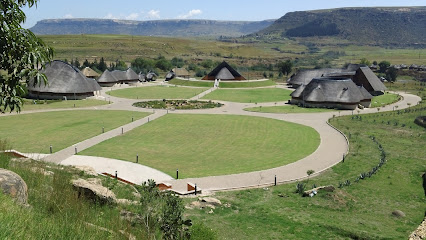
Basotho Hat
Discover the cultural heart of Lesotho at Basotho Hat, where vibrant handicrafts and traditional heritage come together for an unforgettable shopping experience.
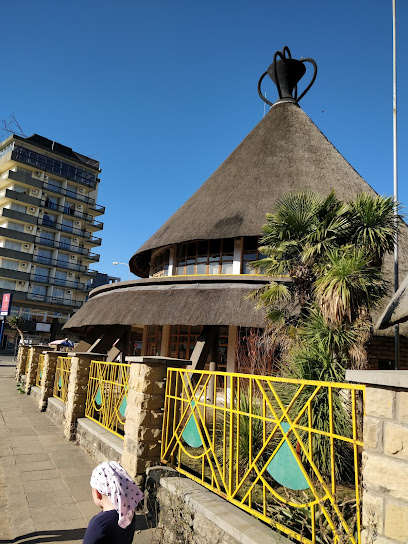
Maletsunyane Falls
Experience the breathtaking beauty of Maletsunyane Falls, one of Africa's highest waterfalls, and immerse yourself in the stunning landscapes of Lesotho.
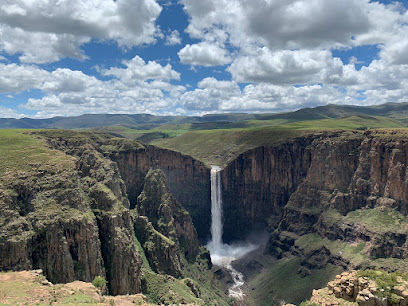
Liphofung Cave,Chalets
Discover the wonders of Liphofung Cave in Khukhune, a captivating destination blending natural beauty and rich history in the heart of Lesotho.
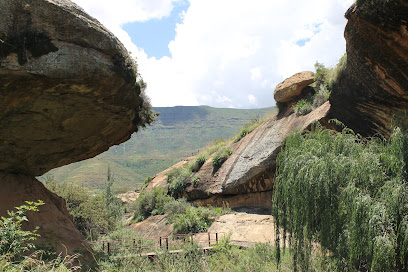
Mafika Lisiu Pass View Point
Discover the stunning panoramic views and serene beauty of Mafika Lisiu Pass, a must-visit nature preserve in the heart of Lesotho's highlands.
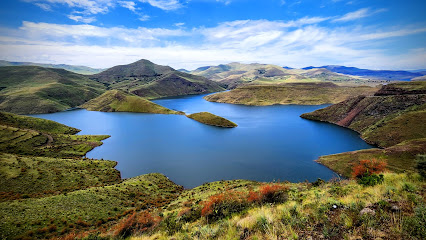
Mokhotlong Hotel
Discover the warmth and charm of Mokhotlong Hotel, your cozy retreat in the heart of Lesotho’s breathtaking landscapes and vibrant culture.
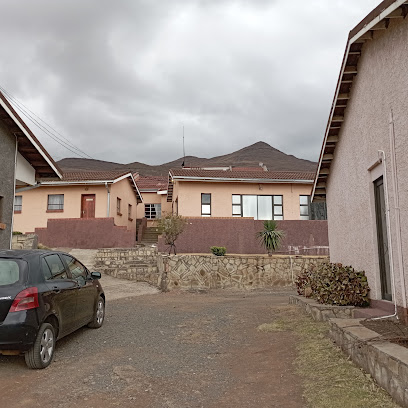
The Lion Rock Mountain
Discover the breathtaking beauty and cultural significance of Lion Rock Mountain in Maseru, Lesotho, a must-visit destination for adventure and scenic views.
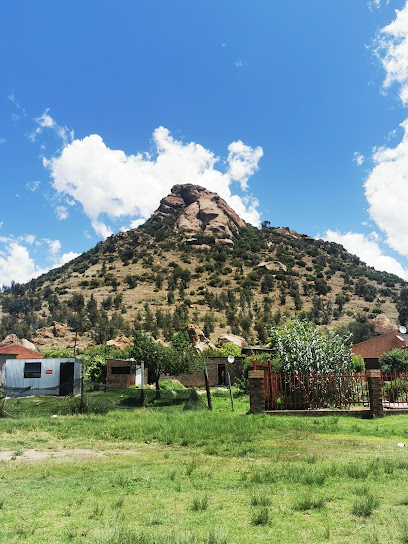
Bokong Nature Reserve
Explore the breathtaking landscapes and diverse wildlife of Bokong Nature Reserve in Lesotho, a haven for nature lovers and adventure seekers.
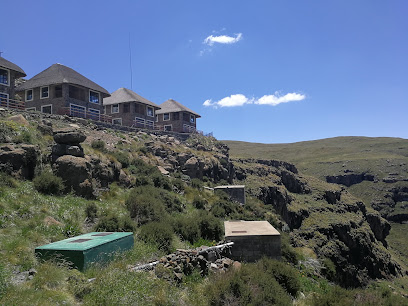
Kome Caves
Explore the enchanting Kome Caves in Lesotho, where ancient history and stunning natural beauty converge for an unforgettable adventure.
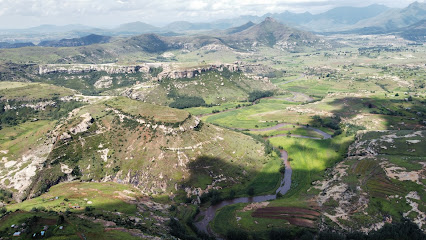
Qacha's Nek Snake Park
Discover the extraordinary diversity of snakes and stunning landscapes at Qacha's Nek Snake Park, a unique nature preserve in Lesotho.
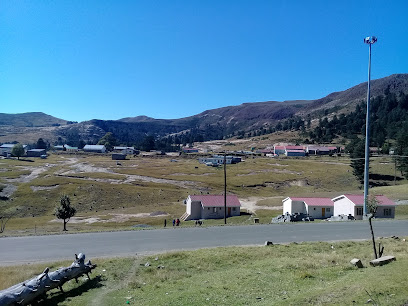
Katse Dam Botanical Gardens & Nursery
Explore the beauty of Lesotho at Katse Dam Botanical Gardens & Nursery, a peaceful retreat showcasing indigenous flora and stunning dam views.
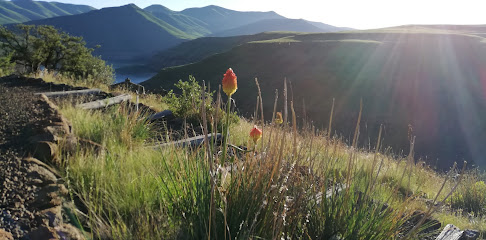
Gates of Paradise Pass
Discover the breathtaking views and rich history at Gates of Paradise Pass, a stunning landmark in Malealea, Lesotho.
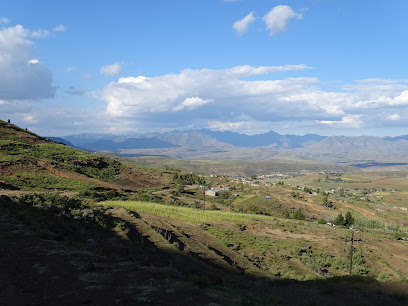
Tsabi's Guest House
Experience the warmth of local hospitality at Tsabi's Guest House, a cozy retreat in Mokhotlong surrounded by breathtaking landscapes and rich culture.
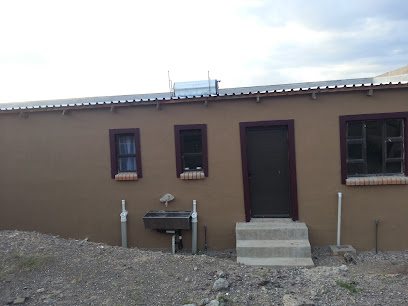
Scenery Guesthouse Mokhotlong
Immerse yourself in the breathtaking beauty of Mokhotlong at Scenery Guesthouse, your cozy retreat in the heart of Lesotho's stunning landscapes.
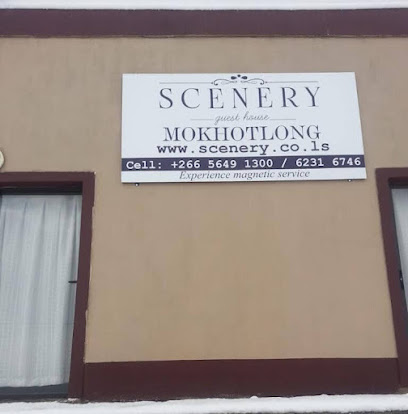
Mokhotlong High School
Explore Mokhotlong High School in Lesotho, where education meets culture in a vibrant community setting, surrounded by stunning natural landscapes.

Unmissable attractions to see
Maloti-Drakensberg Park
Explore dramatic landscapes, ancient rock art, and unique biodiversity in this UNESCO World Heritage Site straddling South Africa and Lesotho.
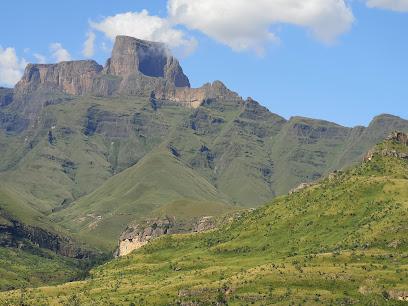
Sani Pass
Experience the thrill of Sani Pass, the Roof of Africa: A challenging 4x4 route with breathtaking views and a taste of Lesotho culture.
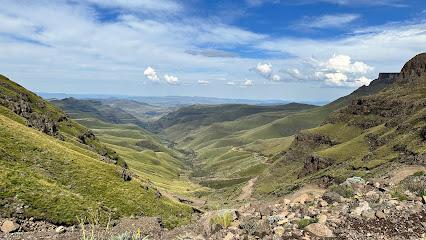
Drakensberg
Explore the breathtaking beauty of the Drakensberg mountains in Lesotho, a UNESCO World Heritage site perfect for adventure seekers and nature lovers.
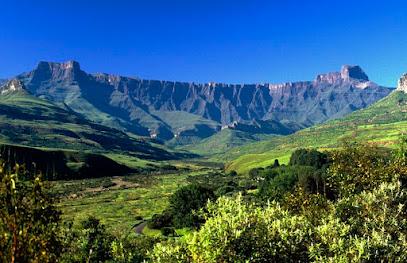
Maletsunyane Falls
Experience the awe-inspiring Maletsunyane Falls, one of Africa's tallest waterfalls, near the village of Semonkong in Lesotho.
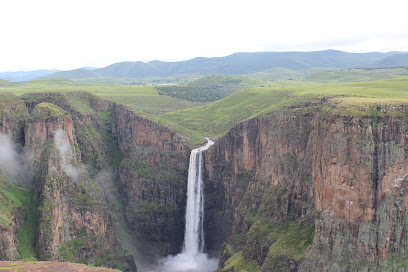
Mafika Lisiu Pass View Point
Experience Lesotho's majestic beauty at Mafika Lisiu Pass View Point: panoramic vistas, cultural richness, and alpine serenity await!
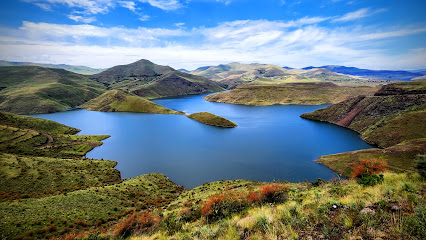
Giant's Castle
Discover San rock art, diverse wildlife, and panoramic views in the heart of the Drakensberg Mountains at Giant's Castle Nature Reserve.
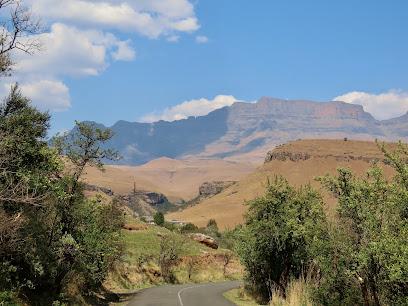
Qacha's Nek Snake Park
Discover Lesotho's only snake park in Qacha's Nek: a unique blend of wildlife, education, and local charm. Encounter fascinating reptiles!
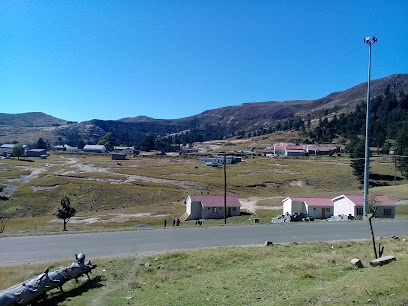
bv nest
Discover Bv Nest, Lesotho: A scenic escape offering tranquility, cultural immersion, and breathtaking natural beauty for an unforgettable adventure.

Mnweni Pass
Hike into the heart of the Drakensberg via Mnweni Pass for unmatched views and a challenging wilderness experience.
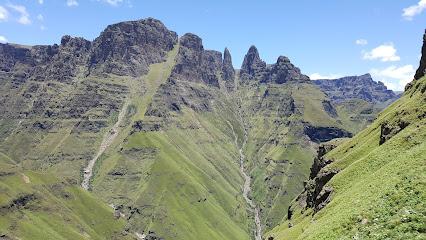
Qenehelong
Discover Qenehelong, Lesotho: A captivating blend of scenic beauty, rich culture, and tranquil nature experiences in the heart of the Mountain Kingdom.

Timothy the Tree
Discover the serene beauty of Timothy the Tree near Thaba-Tseka, Lesotho, a solitary landmark offering tranquility and natural splendor.

God's Window
Experience breathtaking panoramic views from God's Window in Drakensberg, Lesotho. A must-see destination for nature and photography enthusiasts.

Khalong-La-Lithunya
Discover Khalong-La-Lithunya: Lesotho's pristine nature preserve with stunning vistas, diverse trails, and a tranquil escape for outdoor adventures.
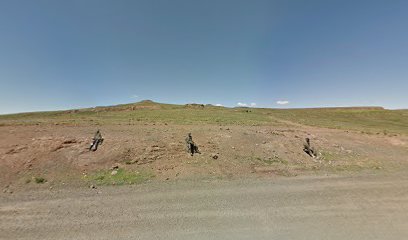
Essential places to dine
Piripiri Restaurant
Experience authentic Portuguese cuisine at Piripiri Restaurant in Maseru – where flavor meets tradition in a cozy setting.
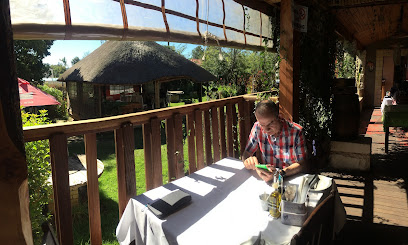
The Market
Experience the best of Lesotho's cuisine at The Market in Maseru Mall - where local flavors meet international flair.
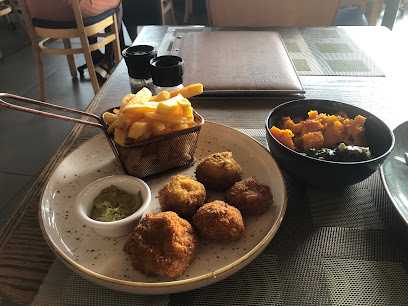
No.7 Restaurant
Experience authentic Lesotho cuisine at No.7 Restaurant in Maseru—where tradition meets taste in a cozy setting.
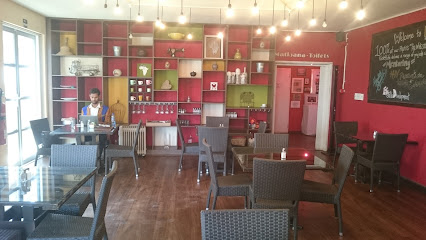
Le Rook's Cafe
Discover Le Rook's Cafe in Hlotse: A cozy restaurant offering delicious local dishes and beverages in a charming atmosphere.
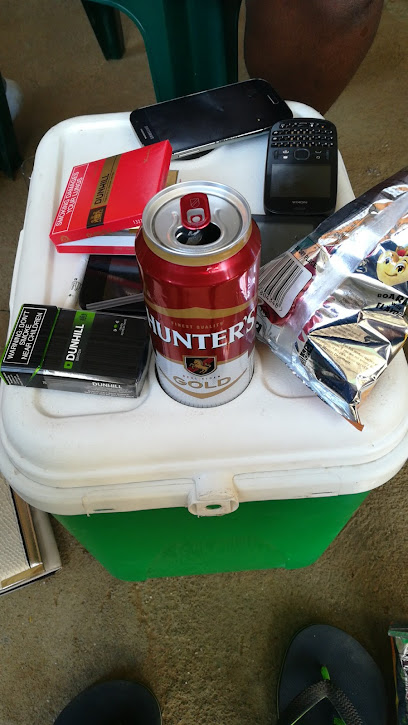
N'Jays Restaurant
Discover authentic Lesotho cuisine at N'Jays Restaurant in Maseru – where every meal tells a story.
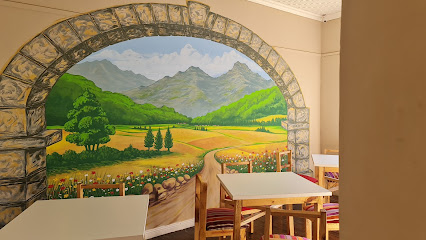
Monte Carlo Restaurant
Discover the flavors of Lesotho at Monte Carlo Restaurant in Maseru - where tradition meets contemporary dining.
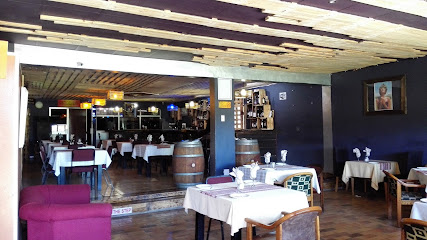
Vine Knot Restaurant
Discover culinary delights at Vine Knot Restaurant in South Africa - where local flavors meet exceptional service.
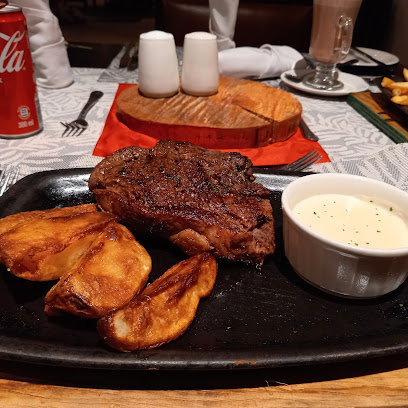
PALLYS KITCHEN
Experience authentic Basotho cuisine at Pally's Kitchen in Qachas Nek – a hidden gem where tradition meets flavor.
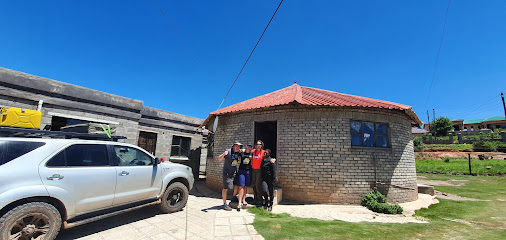
Good Times Valley
Discover delightful cuisine at Good Times Valley in Teyateyaneng - where local flavors meet warm hospitality.
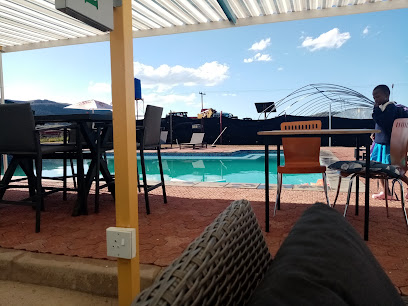
SEASONAL LIQUOR RESTAURANT
Discover the flavors of Hlotse at Seasonal Liquor Restaurant, where every pizza is crafted with passion and served with warmth.
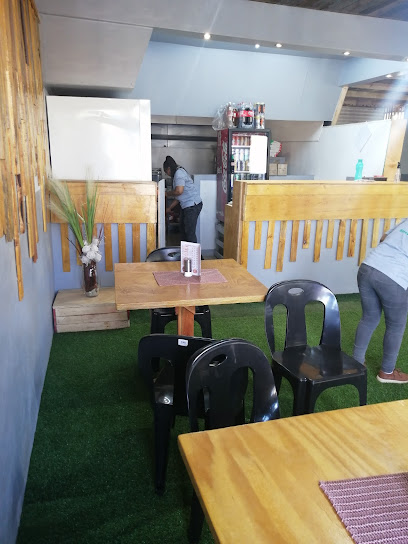
Fam Pizza Restaurant
Discover delicious pizzas at Fam Pizza Restaurant in Mokhotlong - where quality meets flavor in a cozy setting.
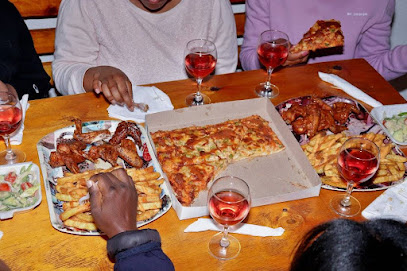
Майонезное Кафе
Experience innovative cuisine at Майонезное Кафе, where every dish celebrates the art of mayonnaise in delightful ways.

Cafe Mojo
Discover Cafe Mojo in Morija: where Basotho flavors meet warm hospitality in a cozy dining atmosphere.
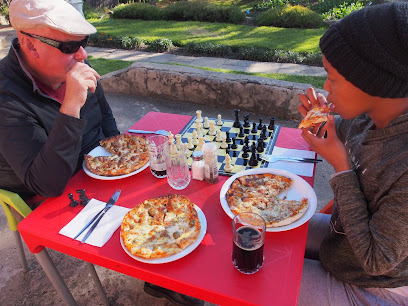
Thotoane Restaurant
Experience authentic Basotho cuisine at Thotoane Restaurant in Hlotse – where every dish tells a story.
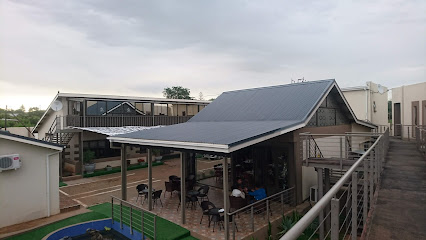
Lethaha public bar
Experience authentic Basotho cuisine at Lethaha Public Bar in Thaba-Tseka – where flavor meets community spirit.

Markets, malls and hidden boutiques
Shoprite Mini Mokhotlong
Discover the heart of Mokhotlong at Shoprite Mini Mokhotlong, your go-to grocery store for local and international products.
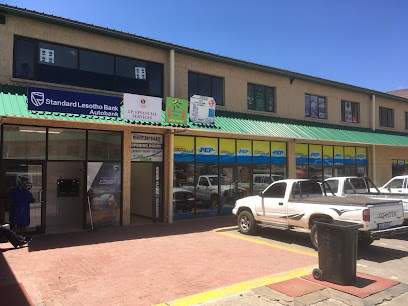
Mokhotlong Hotel
Discover the charm of Mokhotlong Hotel, a perfect blend of comfort and adventure in the breathtaking highlands of Lesotho.
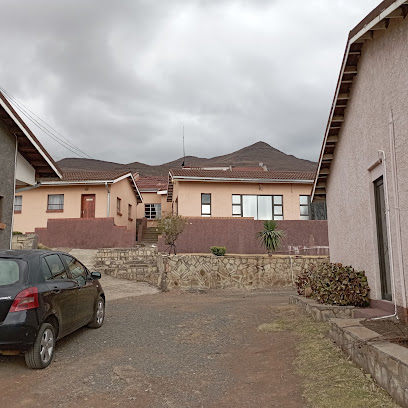
Ntja Mokoatle Trading
Explore Ntja Mokoatle Trading in Mokhotlong for quality hardware supplies and local craftsmanship, perfect for your travel needs.
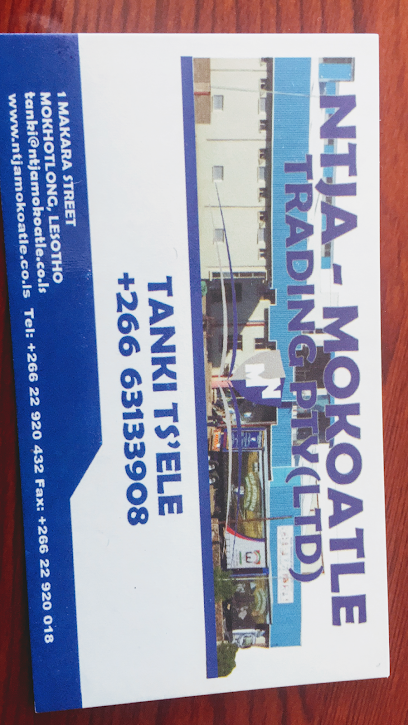
PEP Mapholaneng
Shop at PEP Mapholaneng for a diverse range of affordable clothing for all ages in the heart of Mokhotlong, Lesotho.

Mokhotlong High School
Experience the vibrant culture and educational spirit of Mokhotlong High School nestled in the scenic mountains of Lesotho.

Mokhotlong
Indulge in the exquisite flavors of Lesotho at Mokhotlong, a charming bakery nestled in breathtaking landscapes.

Boikhethelo Guest House
Discover the serene beauty of Mokhotlong at Boikhethelo Guest House, your cozy escape in Lesotho's mountain kingdom.

Botshelo General Dealer
Explore Botshelo General Dealer in Tlokoeng for a delightful mix of local goods and warm hospitality, a true reflection of the community's spirit.
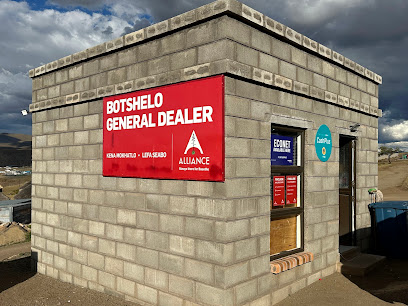
Senqu Hotel
Discover the serene charm of Mokhotlong at Senqu Hotel, your perfect retreat in the heart of Lesotho's breathtaking landscapes.
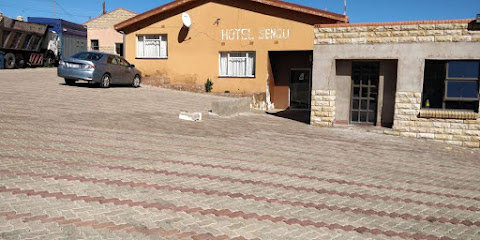
Wen Juan Supermarket
Discover Asian culinary delights at Wen Juan Supermarket in Mokhotlong, offering a wide range of unique Chinese specialty items for all food enthusiasts.
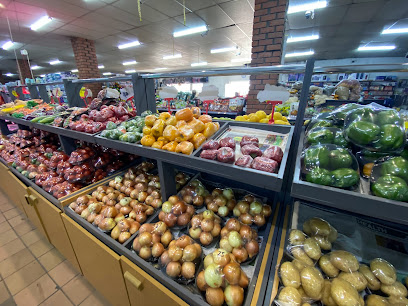
Bra-kay-sound-fitter...mafatlaneng
Explore the vibrant Bra-kay-sound-fitter shopping mall in Mokhotlong, a hub of local culture, crafts, and culinary delights.
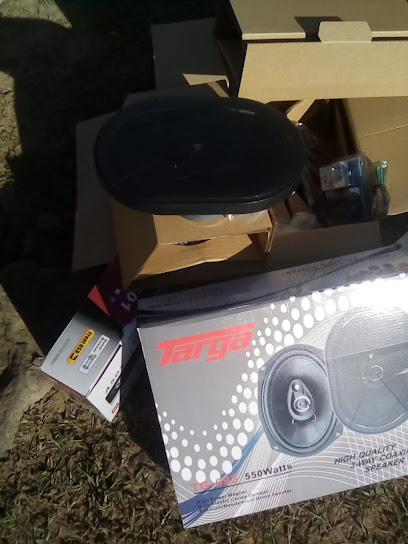
Plaatburg Supermarket Mokhotlong
Discover the heart of Mokhotlong at Plaatburg Supermarket, your local stop for fresh produce and unique Lesotho delicacies.
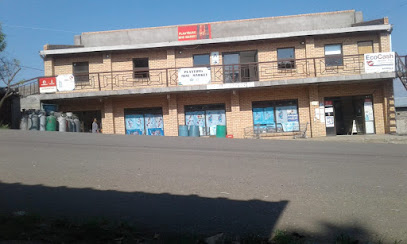
Ba Fokeng Fruit and Veg
Discover the essence of Lesotho's agriculture at Ba Fokeng Fruit and Veg, a vibrant store offering fresh local produce in Mokhotlong.
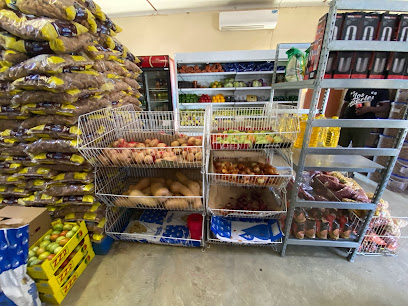
Shoprite LiquorShop Mokhotlong
Explore a wide selection of beverages at Shoprite LiquorShop Mokhotlong, the go-to liquor store for locals and tourists alike.

Waheed Enterprises
Discover the heart of Mokhotlong at Waheed Enterprises, where local flavors and community spirit come together in a vibrant supermarket experience.
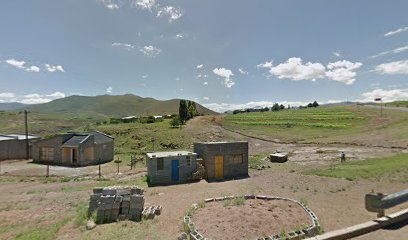
Essential bars & hidden hideouts
Mokhotlong Hotel
Discover the warmth and comfort of Mokhotlong Hotel, a perfect retreat amidst the stunning landscapes of Lesotho.
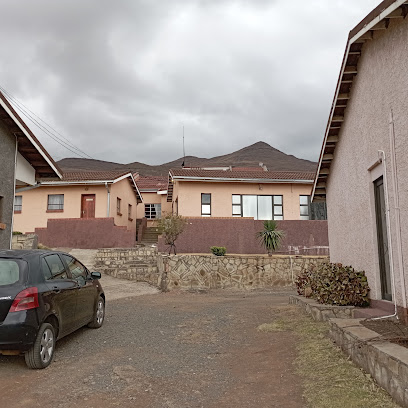
Tsabi's Guest House
Experience the charm and comfort of Tsabi's Guest House in Mokhotlong, where local culture meets modern hospitality in stunning mountain surroundings.
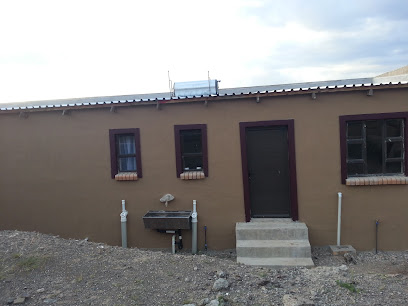
Mokhotlong High School
Discover the vibrant educational and cultural heart of Mokhotlong at Mokhotlong High School, where tradition meets modern learning.

Lethaha public bar
Discover the vibrant flavors and warm hospitality of Lesotho at Lethaha Public Bar in Thaba-Tseka, a perfect stop for food lovers and culture seekers.

Boikhethelo Guest House
Discover tranquility and local charm at Boikhethelo Guest House in Mokhotlong, a perfect retreat for travelers exploring Lesotho's beauty.

MosJoint
Experience the vibrant nightlife and local culture at MosJoint, your go-to bar for great drinks and memorable moments.

Mokhothu Bar
Discover the charm of Mokhothu Bar in Teyateyaneng, where locals and travelers come together to enjoy refreshing drinks and vibrant culture.
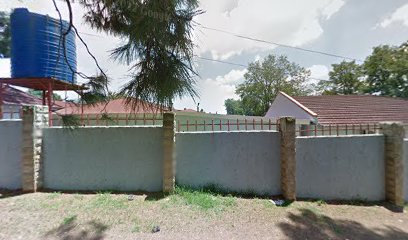
Black Box Pub & GRILL
Discover the lively ambiance and delicious offerings at Black Box Pub & Grill in Butha Buthe, your go-to bar for great food and drinks.
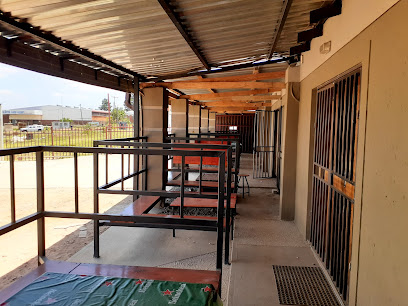
Senqu Hotel
Discover comfort and breathtaking views at Senqu Hotel, your ideal lodging in Mokhotlong, Lesotho.
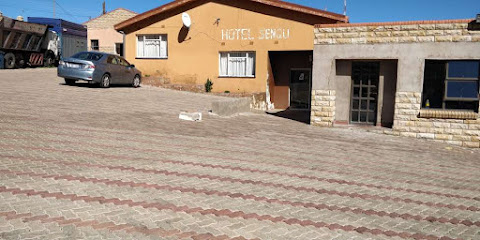
Liranteng Public Bar
Discover the heart of Thaba-Tseka at Liranteng Public Bar, where local culture meets vibrant ambiance and delightful beverages.

Liranteng
Experience the vibrant nightlife of Thaba-Tseka at Liranteng, a local bar offering great drinks and a welcoming atmosphere.

drink
Experience the vibrant nightlife of Thaba-Tseka with a unique blend of local drinks and lively atmosphere at this local bar.

50/50 public bar
Discover the spirit of Thaba-Tseka at 50/50 Public Bar, where locals and travelers unite over drinks and vibrant culture.

makholokwe mokhotlong lesotho
Experience the vibrant local culture and diverse offerings at Makholokwe Supermarket in Mokhotlong, Lesotho - your ultimate shopping destination.
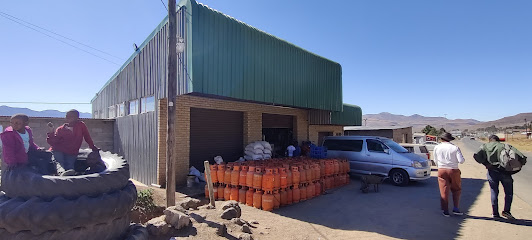
Local Phrases
-
- HelloDumela
[doo-MEH-la] - GoodbyeTsamaya hantle
[tsa-MA-ya HAN-tle] - YesEa
[EA] - NoHa
[HA] - Please/You're welcomeNgiyacela
[ngi-ya-CE-la] - Thank youKea leboha
[KE-a le-BO-ha] - Excuse me/SorryTlameha
[TLA-me-ha] - How are you?U phela joang?
[u PHE-la jo-ang] - Fine. And you?Ke phela hantle. Le wena?
[KE PHE-la HAN-tle. le WE-na] - Do you speak English?Na u bua seakhoa?
[na u BUA se-a-KHO-a] - I don't understandHa ke utloa
[HA ke u-TLO-a]
- HelloDumela
-
- I'd like to see the menu, pleaseKe kopa ho bona menu, hantle
[ke KO-pa ho BO-na ME-nu HAN-tle] - I don't eat meatHa ke khapa nyama
[HA ke KHA-pa nya-MA] - Cheers!Phokotso!
[pho-KOT-so] - I would like to pay, pleaseKe kopa ho fumana, hantle
[ke KO-pa ho fu-MA-na HAN-tle]
- I'd like to see the menu, pleaseKe kopa ho bona menu, hantle
-
- Help!Bohle bophelo!
[BOH-le bo-PHE-lo] - Go away!Ngohle!
[ngoh-LE] - Call the Police!Nka fona bopolase!
[nka FO-na bo-po-LA-se] - Call a doctor!Nka fona mohlokomedi!
[nka FO-na mo-HLO-ko-me-di] - I'm lostKe ne ke khoneha
[ke ne ke kho-NE-ha] - I'm illKe lelapa
[ke le-LA-pa]
- Help!Bohle bophelo!
-
- I'd like to buy...Ke kopa ho rekela...
[ke KO-pa ho RE-ke-la] - I'm just lookingKe sebetsa ho bona
[ke se-BET-sa ho BO-na] - How much is it?Ke bokae?
[ke bo-KA-e] - That's too expensiveEna e le mahala haholo
[E-na e le ma-HA-la ha-HO-lo] - Can you lower the price?Na u ntate mosebetsi?
[na u nta-te mo-se-BE-tsi]
- I'd like to buy...Ke kopa ho rekela...
-
- What time is it?Keo bokae?
[KE-o bo-KA-e] - It's one o'clockKeo e le nngwe
[KE-o e le n-N-gwe] - Half past (10)Ka lefa (10)
[ka LE-fa (10)] - MorningBophirima
[bo-PHI-ri-ma] - AfternoonSelemo
[se-LE-mo] - EveningLehlakore
[le-hla-KO-re] - YesterdayNtse kele
[ntse KE-le] - TodayNamuhla
[na-MU-hla] - TomorrowNgama
[nga-MA] - 1Nngwe
[n-N-gwe] - 2Nngwana
[n-N-gwa-na] - 3Nngwedi
[n-N-gwe-di] - 4Nngwane
[n-N-gwa-ne] - 5Nngwato
[n-N-gwa-to] - 6Nngwano
[n-N-gwa-no] - 7Nngwale
[n-N-gwa-le] - 8Nngwanele
[n-N-gwa-ne-le] - 9Nngwasetere
[n-N-gwa-se-te-re] - 10Nngwaserong
[n-N-gwa-se-rong]
- What time is it?Keo bokae?
-
- Where's a/the...?Kae ke...
[ka-e ke] - What's the address?Ho na leteromo?
[ho na le-te-ro-mo] - Can you show me (on the map)?Na u lokisa ka mapha?
[na u lo-KI-sa ka MA-pa] - When's the next (bus)?E hore e kae (bus)?
[e ho-re e ka-e (bus)] - A ticket (to ....)Litshebeletso (ho ....)
[li-tshe-be-let-so ho]
- Where's a/the...?Kae ke...
History of Mokhotlong
-
Mokhotlong, translating to 'Place of the Bald Ibis,' was founded in the early 20th century and is situated in the mountainous region of Lesotho. The town emerged as an important trading post and a hub for the local communities, serving as a crucial stop for traders and travelers journeying through the rugged terrain of the Drakensberg Mountains.
-
In the late 19th century, the British extended their influence into the region, establishing administrative control over what is now Mokhotlong. Their presence marked the beginning of significant infrastructural developments, including the construction of roads and communication networks. This era also saw the introduction of Western education and healthcare systems to the area.
-
During World War II, Mokhotlong played a unique role as a recruitment center for the Basotho soldiers who fought alongside the British forces. The town served as a staging ground where local men were enlisted and trained before being dispatched to various battlefronts around the world. This period left a lasting impact on the local community and its collective memory.
-
In the late 20th century, Mokhotlong gained prominence due to the Highlands Water Project, a major infrastructure initiative aimed at harnessing the water resources of the Lesotho Highlands. The project brought significant economic activity to the region, including the construction of dams and tunnels, and provided employment opportunities for the local population. It also led to the development of new roads and improved transportation links.
-
Mokhotlong is rich in cultural heritage, with traditions deeply rooted in the Basotho way of life. The town is known for its vibrant festivals, traditional music, and dance. Local artisans produce intricate crafts, including woven hats and blankets, which are highly valued both within and outside Lesotho. Mokhotlong's culture is also reflected in its oral histories and folklore, passed down through generations.
-
Today, Mokhotlong is a blend of tradition and modernity. While retaining its historical and cultural essence, the town has embraced contemporary developments, including improved healthcare facilities, educational institutions, and tourism infrastructure. Visitors to Mokhotlong can explore its scenic landscapes, engage with its hospitable community, and delve into its rich historical narrative.
Mokhotlong Essentials
-
Mokhotlong is located in the northeastern part of Lesotho. The easiest way to get there is by flying into Moshoeshoe I International Airport in Maseru, the capital city of Lesotho. From Maseru, you can hire a 4x4 vehicle or take a local taxi for the approximately 220-kilometer journey to Mokhotlong. The road to Mokhotlong is scenic but can be challenging, especially in adverse weather conditions, so it's advisable to travel with an experienced driver.
-
While in Mokhotlong, transportation options include local taxis and minibus services. Due to the rugged terrain, a 4x4 vehicle is highly recommended for exploring the region. Walking is also a practical option within the town itself. For longer distances or trips to more remote areas, hiring a local guide can be beneficial.
-
The official currency in Lesotho is the Lesotho Loti (LSL), which is pegged to the South African Rand (ZAR). Both currencies are widely accepted. Credit card facilities are limited, so it's advisable to carry sufficient cash. ATMs are available but can be unreliable, so withdraw cash in Maseru before heading to Mokhotlong.
-
Mokhotlong is generally safe for tourists, but standard precautions should be taken. Avoid walking alone at night, and keep your belongings secure in crowded places. While there are no specific high-crime areas targeting tourists, staying vigilant and aware of your surroundings is always a good practice.
-
In case of emergency, dial 123 for police assistance or 121 for medical emergencies. Mokhotlong has a local police station and a hospital for medical emergencies. It’s advisable to have comprehensive travel insurance that covers medical emergencies. Pharmacies are available for minor health issues and over-the-counter medications.
-
Fashion: Do dress modestly, especially in rural areas. Avoid wearing revealing clothing. Religion: Do respect local customs and traditions. When visiting religious sites, dress conservatively and act respectfully. Public Transport: Do be respectful and give up your seat to elderly passengers. Don't eat or drink on public transport. Greetings: Do greet people with a handshake and a smile. A slight bow of the head is also a sign of respect. Eating & Drinking: Do try local delicacies and accept food offerings graciously. Don't refuse hospitality, as it is considered impolite.
-
To experience Mokhotlong like a local, visit the weekly markets where you can buy fresh produce and traditional Basotho crafts. Engage with locals, as they are often friendly and willing to share stories about the region's history and culture. Don’t miss hiking in the Maloti Mountains or visiting the Sani Pass, which offers spectacular views and a unique experience of the mountainous terrain.
Trending Landmark in Mokhotlong
-
Thaba Bosiu Cultural Village
-
Basotho Hat
-
Maletsunyane Falls
-
Liphofung Cave,Chalets
-
Mafika Lisiu Pass View Point
-
Mokhotlong Hotel
-
The Lion Rock Mountain
-
Bokong Nature Reserve
-
Kome Caves
-
Qacha's Nek Snake Park
-
Katse Dam Botanical Gardens & Nursery
-
Gates of Paradise Pass
-
Tsabi's Guest House
-
Scenery Guesthouse Mokhotlong
-
Mokhotlong High School
Nearby Cities to Mokhotlong
-
Things To Do in Thaba-Tseka
-
Things To Do in Butha-Buthe
-
Things To Do in Leribe
-
Things To Do in Teyateyaneng
-
Things To Do in Maseru
-
Things To Do in Quthing
-
Things To Do in Mohale's Hoek
-
Things To Do in Mafeteng
-
Things To Do in Durban
-
Things To Do in Bloemfontein
-
Things To Do in Johannesburg
-
Things To Do in Malkerns
-
Things To Do in Manzini
-
Things To Do in Mbabane
-
Things To Do in Big Bend








